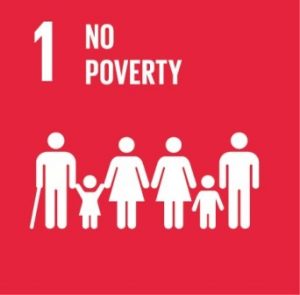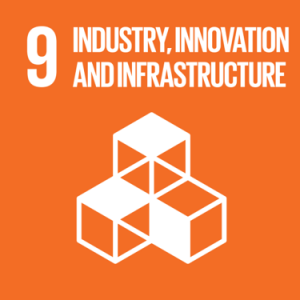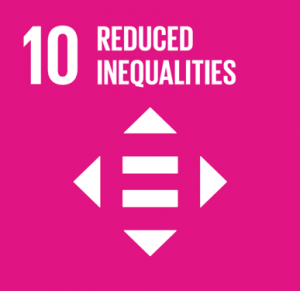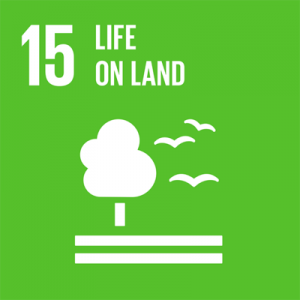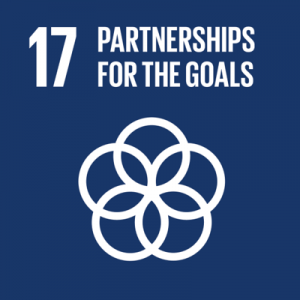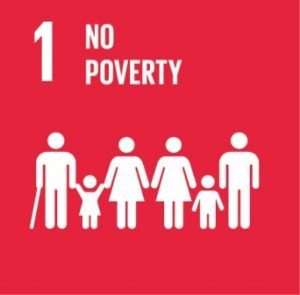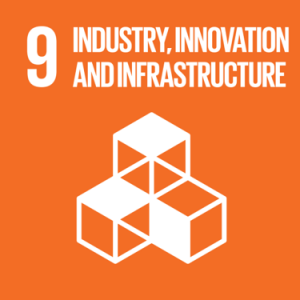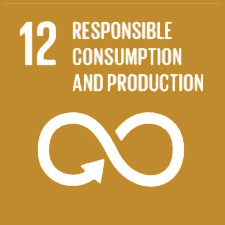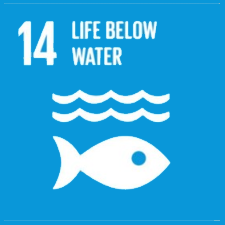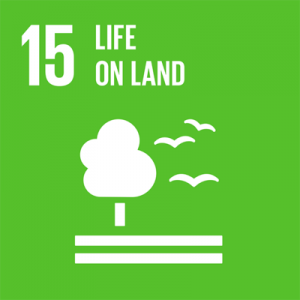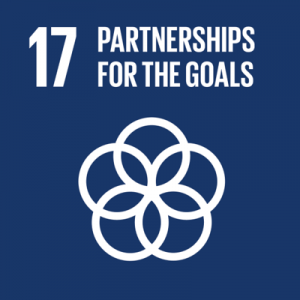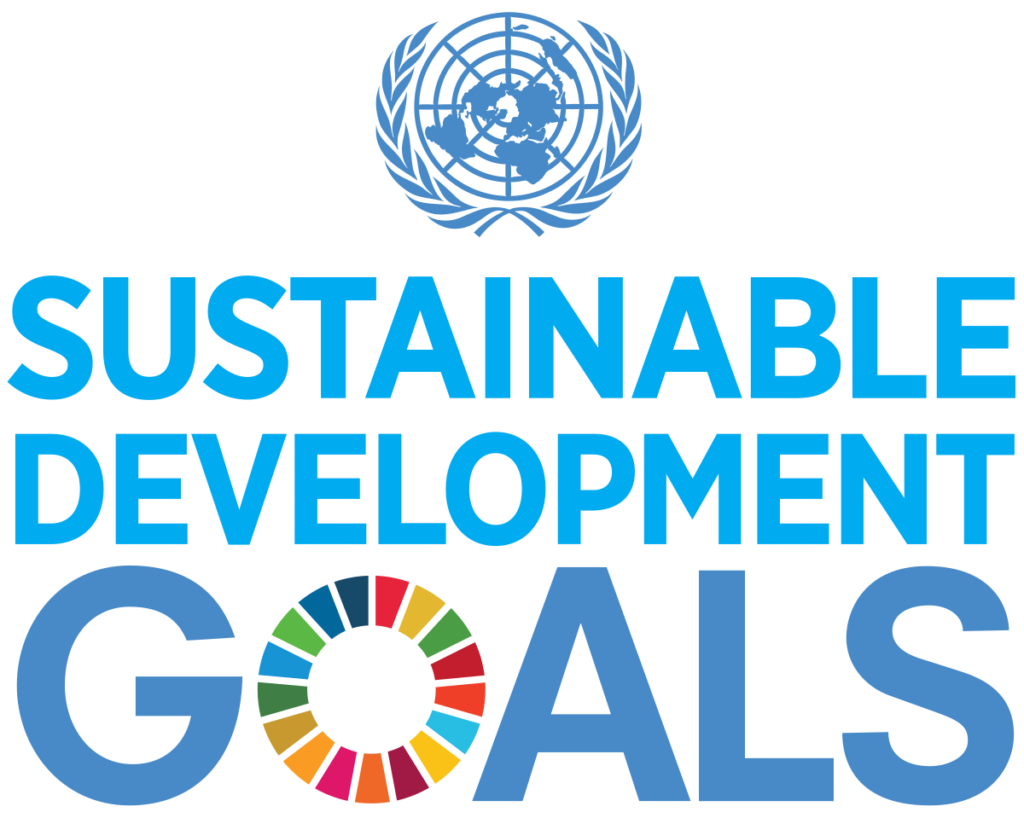SUSTAINABLE DEVELOPMENT GOALS

SDG 5: GENDER QUALITY
“Women and girls continue to suffer discrimination and violence in every part of the world. Gender equality is a fundamental human right, and a foundation for a peaceful, prosperous and sustainable world. Providing women and girls with equal access to education is a key part of delivering gender equality, but universities also have a wider role to drive forward gender equality in their communities.”
(THE Impact Rankings)
Student access measures
IPB University has conducted systematic monitoring and evaluation of female enrollment and admission rates, as stated in Circular Letter Number 24799/IT3/KP/2021 (Page 2, Point a), which affirms that “IPB conducts tracking and monitoring of disaggregated data for social inclusion groups such as women, persons with disabilities, economically disadvantaged individuals, and those from Frontier, Outermost, and Disadvantaged (3T) regions across various datasets and activities, including new student admissions, faculty and department enrollment, student activities, graduates, alumni, and staffing, in order to promote fairness, diversity, and equality.”
Gender and social inclusion disaggregated data are available at the Directorate of Academic Administration and Student Admissions, which manages the internal monitoring system simak.ipb.ac.id and the integrated academic information portal (SITI) IPB. These systems allow continuous tracking of application, admission, and graduation data by gender.
IPB University has established a policy addressing women’s access, admission, and participation, as stated in Circular Letter Number 24799/IT3/KP/2021 (Page 2, Point b). The circular letter affirms that “IPB provides affirmative support to members of the academic community from social inclusion groups such as women, persons with disabilities, economically disadvantaged individuals, and those from Frontier, Outermost, and Disadvantaged (3T) regions to ensure equal access to and participation in education, research, and community service programs.”
This policy demonstrates IPB University’s institutional commitment to ensuring that women have equitable opportunities to apply, enroll, and actively participate in all academic and non-academic activities.
Policy addressing women’s access, admission, and participation
IPB University provides institutional women’s access schemes in the form of mentoring programs, scholarships, and other targeted provisions. This commitment is formally stated in Circular Letter Number 24799/IT3/KP/2021 (Page 2, Point c), which affirms that “IPB provides affirmative access schemes and offers mentoring programs, scholarships, and other forms of support for members of the academic community from social inclusion groups such as women, persons with disabilities, economically disadvantaged individuals, and those from Frontier, Outermost, and Disadvantaged (3T) regions.”
In alignment with this policy, IPB University established the Women’s Leadership Dormitory (Asrama Kepemimpinan Putri – AKP) as a structured talent development platform to cultivate leadership skills and empower future female leaders. The program forms part of the Leadership Boot Camp, which involves both male and female students, maintaining gender balance while placing special emphasis on developing women’s leadership capacity. The AKP initiative focuses on mentoring, self-development, and values-based leadership, helping women build confidence, resilience, and integrity in addressing contemporary challenges. It also responds to issues such as limited female representation in leadership, declining civic values, reduced youth interest in agriculture, and gender inequality in leadership opportunities.
In addition, IPB University provides extensive access to scholarships and financial aid to ensure inclusivity and equal opportunities for all students, including women. Through collaborations with various partners and donors, the university distributed over IDR 125 billion in scholarships to more than 10,600 students in 2024. Although these scholarships are not exclusively designated for women, female students have equal eligibility and active participation, demonstrating IPB’s commitment to gender equality and social inclusion.
Through its affirmative access policy, mentoring programs, and inclusive scholarship schemes, IPB University ensures that women have equitable opportunities for academic, personal, and professional development.
IPB University has actively encouraged the participation of women in fields of study where they are underrepresented, as stated in Circular Letter Number 24799/IT3/KP/2021 (Page 2, Point d). The circular affirms that “IPB encourages the participation of members of the academic community from social inclusion groups such as women, persons with disabilities, economically disadvantaged individuals, and those from Frontier, Outermost, and Disadvantaged (3T) regions in spaces where they are underrepresented.”
In line with this policy, IPB University continuously promotes gender equality and enhances women’s participation in academic and professional fields through various institutional initiatives. One concrete example is the Workshop and Focus Group Discussion (FGD) on Gender Mainstreaming Study, organized by the Institute for Science and Technology Area (LKST) IPB University in December 2024 in Bogor. The event was attended by 58 participants from various university units and departments, aiming to explore strategies for implementing gender equality principles within higher education.
The workshop and FGD aimed to identify practical measures to increase women’s participation in academic and leadership domains, particularly in science, technology, engineering, and agriculture (STEM-A) fields traditionally dominated by men. The outcomes of the discussion were later used by several faculties as a reference to integrate gender perspectives into academic promotion materials, student development programs, and new student recruitment strategies, thereby motivating more women to apply for and pursue careers in underrepresented disciplines.
Women's progress measures
IPB University has established a comprehensive policy of non-discrimination against women, as stipulated in Circular Letter Number 24799/IT3/KP/2021. The circular affirms that “The implementation and development of the university’s three pillars of higher education (education, research, and community service) shall be carried out by applying the principles of fairness, diversity, and equality in daily life.” Specifically, Page 3, Point (e) of the circular states that “IPB ensures that there is no discriminatory practice in any form against members of the academic community from social inclusion groups such as women, persons with disabilities, economically disadvantaged individuals, and those from Frontier, Outermost, and Disadvantaged (3T) regions within the campus environment.”
Furthermore, IPB University has established a reporting mechanism for students and staff who experience discrimination or violence. Reports can be submitted through the IPB Help Center, which forwards the cases to the relevant authorities. Cases of sexual violence are handled directly through the hotline of the PPKS Task Force (Task Force for the Prevention and Handling of Sexual Violence).

IPB University upholds a strong commitment to maintaining a respectful, inclusive, and discrimination-free academic environment for all members of its community. As stated in Circular Letter Number 24799/IT3/KP/2021 (Page 3, Point h), the university ensures the implementation of campus regulations, enforces the prevention and handling of discrimination against social inclusion groups, and strengthens reporting mechanisms within the academic community.
In addition, IPB University has established an official reporting system through the IPB Help Center, which enables students and staff to report any cases of discrimination or violence for appropriate follow-up. Cases related to sexual harassment or violence are specifically handled through the hotline of the Task Force for the Prevention and Handling of Sexual Violence (PPKS). Through these mechanisms, IPB University ensures fairness, respect, and equal treatment for all individuals within the campus environment.

IPB University has established a maternity leave policy as stated in the Standard Operating Procedure for Employee Leave Services (Code POB/SDM/REK/06, Page 11-12, General Provisions on Maternity Leave). It is stipulated that female employees are entitled to maternity leave for the birth of their first to third child, while for the fourth child and subsequent births, IPB employees are granted extended leave.
The duration of maternity leave is three months, and during this period, the concerned employee continues to receive full remuneration, including base salary, family allowance, food allowance, and position allowance as an IPB employee. This policy ensures that women are able to balance their family responsibilities with their professional duties, thereby supporting women’s continued participation in academic and administrative roles at the university.
This is also regulated in Circular Letter Number 24799/IT3/KP/2021 (Page 25, Point f), which states that “IPB ensures and guarantees the rights of female academic community members who are pregnant, breastfeeding, or have toddlers, in accordance with the applicable regulations, and provides necessary adjustments based on their physical conditions.”
IPB University provides early childhood education facilities equivalent to kindergarten, as well as playgroup and daycare services (Agriananda) that can be accessed by students with young children. Agriananda is located within the IPB campus area, specifically at Jalan Anggrek No. 1, Babakan, Dramaga District, Bogor Regency, West Java.
In addition, IPB University operates a character education Labschool that offers pre-school and kindergarten-level education for students’ children, located at Jalan Cikabuyutan No. 1, Tegallega, Central Bogor District, near IPB Baranangsiang Campus. These facilities support student parents, particularly recent mothers, by providing accessible childcare services that enable them to continue attending university courses without interruption.
IPB University provides early childhood education facilities equivalent to kindergarten, as well as playgroup and daycare services (Agriananda), which are accessible to staff and faculty members with young children. Agriananda is located within the IPB University campus area, at Jalan Anggrek No. 1, Babakan, Dramaga District, Bogor Regency, West Java.
In addition, IPB University operates a character education Labschool that offers pre-school and kindergarten-level education for the children of students and staff, located at Jalan Cikabuyutan No. 1, Tegallega, Central Bogor District, near the IPB Baranangsiang Campus. These childcare and early education facilities provide convenient access for staff and lecturers to entrust their children while carrying out their professional duties, thereby supporting a family-friendly and inclusive working environment within the university
In 2024, IPB University actively implemented several structured mentoring and empowerment programs that demonstrate the university’s strong commitment to supporting women’s personal and professional development. These initiatives are coordinated institutionally through the Directorate of Alumni Relations (DHA) and other university-level units, ensuring broad participation across faculties and study programs.
One key initiative is the “Diaspora Mentoring Program Batch IV”, organized by the DHA in 2024. This program provides one-on-one mentoring sessions between IPB students, many of whom are female and IPB alumni living abroad. The mentoring focuses on international career preparation, professional networking, and personal growth. Female students made up a significant portion of the participants, illustrating the program’s role in inspiring women to pursue global academic and professional opportunities.
Additionally, the “Mentoring Leader Program Batch 6”, launched on 2 May 2024, connects senior alumni mentors with recent graduates (within three years after graduation). The program emphasizes leadership capacity building, professional ethics, and workplace readiness. Women are strongly encouraged to join both as mentees and mentors. In 2024, the participation of female students and young alumnae exceeded 10%.
Complementing these mentoring programs, IPB University also hosted the “International Women’s Day 2024” celebration on 20 April 2024, in collaboration with women-in-technology communities under the theme “Impact the Future.” The event featured successful women leaders from academia, industry, and entrepreneurship, and included mentoring and networking sessions specifically designed for female students
IPB University collects and monitors data on the graduation rates of female and male students (gender-disaggregated data). Graduation data are tracked through the internal system simak.ipb.ac.id, managed under the Directorate of Academic Administration and Student Admissions. Based on the attached graph, the number of female graduates is higher than that of male graduates across almost all levels of study (Diploma 3, Diploma 4, Bachelor’s, Master’s, and Professional programs).
In addition, the Directorate of Alumni Relations conducts tracer studies to collect graduate data as evaluation material and feedback for designing programs to improve graduate quality and align graduate competencies both male and female with the demands of the job market. The collected data and tracer study outcomes are also used to develop academic and mentoring schemes aimed at closing any potential gender gap in graduation outcomes.

IPB University has established a policy that protects individuals who report discrimination from any adverse impact on their education or employment, as stated in Circular Letter Number 24799/IT3/KP/2021 (Page 3, Point j), which declares that “IPB guarantees personal protection for individuals reporting cases of discrimination and sexual violence within the campus environment.”
Furthermore, based on Page 3, Points (h) and (i) of the same circular, IPB University monitors the implementation of campus regulations, enforces the prevention and handling of discrimination and sexual violence against social inclusion groups, and strengthens the effectiveness of the reporting system for members of the academic community.
Through these provisions, IPB University ensures that all individuals who report incidents are protected from any form of retaliation, including academic or employment disadvantage, thereby maintaining a safe and inclusive campus environment.
a policy that protects those reporting discrimination from educational or employment disadvantage
IPB University has established a paternity leave policy that supports women’s participation by ensuring that male parents can also take part in childcare, as stated in the Standard Operating Procedure for Employee Leave Services (Code POB/SDM/REK/06, Page 12-14, General Provisions on Leave for Important Reasons). Male employees whose wives give birth or undergo a cesarean section are entitled to special leave for important family reasons, upon submission of a medical certificate from a health care unit. The duration of this special leave is one month, during which the employee continues to receive full remuneration, including base salary, family allowance, food allowance, and position allowance as an IPB employee.
This policy promotes shared parenting responsibilities, helping to create a more gender-balanced environment that enables women to continue their professional and academic engagement after childbirth.
SDG 5 IN NUMBER
35,683
Number of students
7,667
Number of students starting a degree
2,945
Number of first-generation students starting a degree
4,628
Number of women starting a degree
1,933
Number of first-generation women starting a degree
3,371
Number of employees
1,491
Number of academic staff
994
Number of senior academic staff
406
Number of female senior academic staff
7,813
Number of graduates
7,813
Number of graduates by subject area (STEM, Medicine, Arts&Humanities/Social Sciences): Total
4,820
Number of female graduates by subject area STEM, Medicine, Arts & Humanities / Social Sciences): Total
3,460
Number of female graduates: STEM
5,821
Number of graduates: STEM
548
Number of female graduates: Medicine
714
Number of graduates: Medicine
812
Number of female graduates: Arts & Humanities / Social Sciences
1,278
Number of graduates: Arts & Humanities / Social Sciences
RELATED NEWS
It seems we can't find what you're looking for.

